
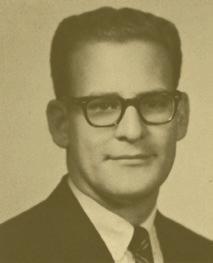
























Rev. Dr. Richard Culp MDiv’93, DMin’01
Rev. Jasiel Hernandez, MDiv’18

Denise Pierce, MATS’11
Rev. Dr. Bob Sebesta, MDiv’55, DMin’83




Rev. David Fletcher, MDiv’69
Rev. Judy Record Fletcher, MDiv’69



Rev. Nick Lascaro, MDiv’73
Kay Lewis, MA’96
The intent of this booklet is celebration. Since 1902, Austin Presbyterian Theological Seminary has educated and equipped Christian leaders. We celebrate the 2,209 living alumni who collectively shepherd countless lambs across the globe. This booklet shines a spotlight on the noble vocation of ministry. If you hold this booklet in your hand, you or someone in your household fall into the category of noble shepherds. Your tireless work on behalf of the Kingdom of God is seen, felt, and appreciated. Through your work the church ministers to the world.
In the following pages, graduates of Austin Seminary share stories about their time on campus or, in ministry, as well as the scriptures that sustain their call. These stories serve as small snapshots of seminary families, clergy couples, community leaders, Christian educators, and those who pastor multiple congregations at once. Other stories feature those who lead directly in a congregational setting or care for the flock by applying their theological education in other professions. Graduates from Austin Seminary are many and varied, but all Austin Seminary graduates share a common response to Christ’s call: They are all, in one way or another, shepherds of Christ’s flock. The alumni of Austin Presbyterian Theological Seminary are leading the way forward and doing the hard work of leading the church through challenging times and in challenging places.
Every person in this booklet answered the call of God and deserves the title “Noble Shepherd.” Nobility is not perfect. But in their humanity, these shepherds press on and shine as examples for the rest of us. Those featured in this booklet are a representation of the noble shepherds who graduate from Austin Seminary each May. The upcoming 2024 Commencement motivates this reflection on our alumni’s work.
We hope that you find inspiration in these stories. We know we can never capture the whole picture of your collective work, but we hope that you enjoy this snapshot.
15 When they had finished breakfast, Jesus said to Simon Peter, “Simon son of John, do you love me more than these?” He said to him, “Yes, Lord; you know that I love you.” Jesus said to him, “Feed my lambs.” 16 A second time he said to him, “Simon son of John, do you love me?” He said to him, “Yes, Lord; you know that I love you.” Jesus said to him, “Tend my sheep.” 17 He said to him the third time, “Simon son of John, do you love me?” Peter felt hurt because he said to him the third time, “Do you love me?” And he said to him, “Lord, you know everything; you know that I love you.” Jesus said to him, “Feed my sheep. 18 Very truly, I tell you, when you were younger, you used to fasten your own belt and to go wherever you wished. But when you grow old, you will stretch out your hands, and someone else will fasten a belt around you and take you where you do not wish to go.” 19 (He said this to indicate the kind of death by which he would glorify God.) After this he said to him, “Follow me.”
Chair: Keatan A. King
Lee Ardell
Thomas Christian Currie
Gregory Cuéllar (faculty member)
James A. DeMent (MDiv’17)
Jill Duffield (DMin’13)
Britta Martin Dukes (MDiv’05)
Peg Falls-Corbitt (CIM’20)
Jackson Farrow Jr.
Beth Blanton Flowers, MD
G. Archer Frierson
Jesús Juan González (MDiv’92, DMin’23)

Cyril Hollingsworth (CIM’16)
Ora Houston
Shawn Kang
John Kenney (CIM’20)
Steve LeBlanc
Sue B. McCoy
Matthew Miller (MDiv’03)
Lisa Juica Perkins (MDiv’11)
Denise Nance Pierce (MATS’11)
Mark B. Ramsey
Stephen J. Rhoades
Sharon Risher (MDiv’07)
Pamela Rivera
Conrad Rocha
Kenneth Snodgrass (MATS’16)
John Van Osdall
Michael Waschevski (DMin’03)
Sallie Sampsell
Watson (MDiv’87)
Elizabeth Currie Williams
Michael G. Wright
Trustees Emeriti:
Cassandra Carr
Lyndon Olson
B.W. “Sonny” Payne
Max Sherman



We thank you, Loving Lord, for Austin Seminary graduates past, present, and future. We value their dedication to study your word, their perseverance to discern your will, and their resilience to follow your way—all while teaching and helping others to do the same.
We are grateful, Omniscient God, that you know the shepherd’s toils which the flocks will never know: sourcing J, E, P, D (and let’s throw in Q too); wrestling with Dogmatics and Institutes; comprehending systematic AND practical theology; knowing who’s Lyon and who’s Knox; experiencing degrees of sleep depravity over the doctrine of total depravity; and learning all the things expected to be known but not included in seminary curriculum.
Help us, Holy Spirit, to appreciate all seminarians—future, present, and past—and their passion for seeking justice, their loving kindness for all God’s children, and their humble efforts for proclaiming the word and sacrament in all that they do.
Amen.
President: Paul Sink (MDiv’00)
Candi Cubbage (MDiv’89)
Matt Edison (MDiv’18)
Kristin Galle (MDiv’01)
David Gambrell (MDiv’98)
John Guthrie (MDiv’06)
Ezequiel HerreraRodriguez (MDiv’19)
Felicia Hopkins (MDiv’96)
Lindsay Jacaruso (MDiv’13)
Josh Kerr (MDiv’14)
Amy Litzinger (MATS’15)
Joe MacDonald (DMin’19)
Jean Reardon (MDiv’05)
Devon Reynolds (MDiv’19)
Amy Sergent (MDiv’92)
Tony Spears (MDiv’15)
Marta Ukropina (MDiv’06)


In the history of Austin Seminary, there are a few family names that appear repeatedly among our alumni. One such name is Sebesta. Rev. Dr. Bob Sebesta was recently asked how his family became such a powerful part of the Seminary’s legacy. His response reflects the deep faith of a family and the consistency of the Seminary’s grounding presence in the life of one family of ministers and thousands of Christians positively affected by their collective service.
Robert (Bob) James, and his twin brothers, David John and Daniel Ray, along with Joe Frank Sebesta, Jr., were born and grew up on a farm in Burleson County, Texas. Their parents were Joe Frank and Julia Bravenec Sebesta. They were members of the Czech Moravian Brethren Church in Caldwell, Texas. The sons grew up speaking Czech and once a month this heritage was celebrated at church services where Czech was the language used in worship. They learned the Christian faith from their parents and by memorizing the Czech Moravian Brethren catechism. They became members of the church by answering the catechism questions in front of the congregation.
Bob stressed the importance of being given responsibilities at church when he and his brothers were all very young. Being trusted in roles of leadership by the elders and congregation was pivotal to their development into leaders of the church. Bob, David, and Daniel became involved in church life by teaching the Adult Sunday School Class when they were teenagers. The elders and congregation also asked the boys to attend the denomination’s conventions as delegates which they did several times, thus learning about the larger workings of the church.
As was the case with most of their peers in the area, the boys attended Hlavaty School, which had nine grades. They walked about three miles to the rural school. After that, they attended and graduated from Caldwell High School and graduated from Southwest Texas State Teachers College in San Marcos, Texas. Bob graduated from SWTSTC in 1952 and his twin brothers in 1956. Bob entered Austin Seminary in 1952 and graduated in 1955. The twins followed him and graduated in 1959. Their involvement in the Presbyterian church was solidified in their years at San Marcos, where they became very involved in the campus ministry of the First Presbyterian Church. It is during these same years that David and Daniel met and married women who were also raised as Christians. Bob met and married Claribel, who was a student at Centenary College and was involved in a work camp at Dulac Methodist Indian Mission in Louisiana. Claribel grew up in a Methodist family with a strong faith that she brought with her to their ongoing ministry as a couple.
Bob’s love of learning didn’t stop after his MDiv was completed in 1955. After a year of ministry, Bob and Claribel spent a year in St. Andrews, Scotland, where they attended the University and St. Mary’s Divinity School. He ultimately received
a Doctorate in Ministry in 1983. Following in Bob’s able footsteps, Daniel received his Doctorate in 1979 and David in 1984.
All three of the brothers completed long and productive lives in ministry and continued to serve their local communities, participating in a wide variety of outreach efforts in their local communities of Seguin, Kerrville, and David in Laurel, Mississippi. The three Sebesta brothers were temporarily separated in 2023 with David’s death. The twins were involved in international Quaker peace missions, a demonstration of the Sebesta brothers’ dedication to peace-making.
The Sebesta family’s involvement in ministry did not stop with their immediate family. Wayne Sebesta, a distant cousin of the Sebesta brothers, grew up in Bryan, Texas, and was a member of First Presbyterian Church, in Bryan. He graduated from Austin College with a Master’s Degree in Music and from Austin Seminary where he was the Seminary’s chapel organist. Wayne served churches from Marietta, Oklahoma, to Bay City, Texas, and eventually moved to Denver, Colorado where he served as Leader of Development for The Synod of the Rocky Mountains and later Executive of Boulder Colorado Presbytery. Wayne returned to the Texas coast upon his retirement in 1993 and died in 2013.
In conversation, Bob stressed that the faith their boyhood congregation had in them gave them the confidence and faith to become ministers. Those formative church relationships resulted in a family legacy of education at Austin Seminary and ministries that literally spanned the globe through their involvement in peacemaking and world mission work. They were also highly influenced by their uncle, the Reverend Ernest Deutsch, who served Presbyterian Churches across Texas. Bob stated: “I have been pastor of churches in Rocksprings, Portland, Harlingen, San Marcos, and Pecos, Texas. I also served a term as associate Presbyter of Mission Presbytery. But I still vividly remember sitting in Dean McCord’s theology class at Austin Seminary and feeling like I had then and there become a Christian.”
When asked why he supports Austin Seminary, Bob said, “Since my retirement in 1997 I have been more of a regular church member in attending worship and being involved in the local church. From this vantage point I see and experience the importance of a well-trained ministry faithful to the reformed tradition. That is why I give annually to Austin Seminary.”
Of Bob’s long life with scripture, he said it is hard to isolate what is most important. “That is a difficult question to answer because there are so many favorites between Genesis 1 and Revelation 22.” He continued, “At this point in my life, my age, and the death of so many family members and friends, my thoughts frequently turn to the life beyond this life and the Book of Revelation, such as Revelation 19:6b-7a. During my ministry, I frequently turned to Philippians 3:10a.”
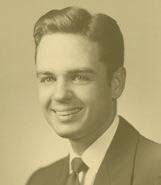
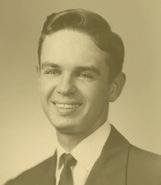
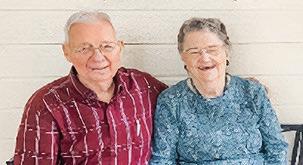

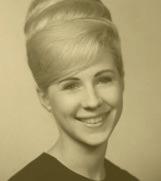
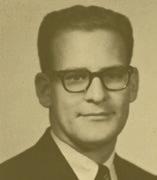
On a warm May evening in 1969, David and Judy graduated from Austin Presbyterian Theological Seminary. They married ten days later during Sunday morning worship at First Presbyterian Church, Pasadena, Texas thus becoming the first clergy couple graduates of the Seminary though the ordinations would come a bit later and the term “clergy couple” did not yet exist. Judy was amongst the first women to graduate from the Seminary.
During their 50-plus years of ministry, they would live and serve in Charlotte, North Carolina, eastern Arkansas, Houston, and Tulsa, Oklahoma. The Fletchers retired from positions in Texas with Judy serving as Executive of The Synod of the Sun for 13 years and David serving in several interim ministries. Their calls to a young church in Houston and then a midsize church in Tulsa were the two co-pastor positions they served. Judy and David did not set out to be trailblazers; it just happened when, after serving separately for several years, they felt called to serve as co-pastors. The church was not so sure it was ready for this. In various interviews, the question, “Who’s really the boss?” surfaced often. Clearly, much education with congregations was needed along the way. David published a paper for the denomination on clergy couple co-pastor calls pointing out that in a good marriage, each one is the “boss” of specific areas of expertise, but the two worked closely together like a well-oiled machine. He explained, “If you need a pastor in the ER, you want David. If you want a good stewardship sermon, you want Judy, and so on.”
Certainly, the Fletchers count the success of their ministries and their marriage as going back to their seminary days and their education there. Austin Seminary seemed like an oasis in the desert of the explosive 60s. Judy commented, “We were a part of a family in which professors and staff were as much a part of the community/family as the students and their families. The professors cared deeply about their students and related to them on a personal basis.”
Two of the oldest professors, Rev. Dr. Rachel Henderlite and Dr. E. T. Thompson were at the capitol on Saturday mornings, marching with the farm workers. A few students joined them along the way. With the assassination of Robert Kennedy and Martin Luther King, Jr., occurring in 1968, the Seminary community was deep into the issues of racial justice and freedom. We learned to live into the reformed theology we were studying in the classroom.
The Fletchers want others to have the opportunities they had, so supporting the Seminary and its students has been a priority throughout their ministry. Judy commented, “I cannot imagine there not being an Austin Seminary to help develop leaders for the Church of Jesus Christ. It is a key part of what they do best.” David adds, “Our faith has grown in our ministries, and our hope is that we helped others to grow as well. The basics we got at the Seminary have served us throughout our ministry.
“In writing these reflections, the biblical passage that seems most important is Mark 6:7. In it, Jesus sends people out two-by-two. One writer has suggested that Jesus was suggesting a collegial style of ministry as opposed to a hierarchical one.”
The Fletchers like that. Together, they have always agreed that giving their financial resources to Austin Seminary is a natural response to their ministry. Scholarships helped them graduate with no seminary debt. It is important to them to be a part of that continued tradition. That is a vital role of alumni.
Judy and David say to their fellow alumni, “Give and give generously for the sake of the work and witness of the Church of Jesus Christ today. You’ll be glad you do!”


Nick began his ministry at First United Methodist Church in Fort Smith, Arkansas as Associate Pastor but before many months had passed, he found himself serving three small congregations in Northwest Arkansas. With over 30 years of ministry to his credit, Nick retired from United Methodist churches in Bull Shoals and Yellville, Arkansas.
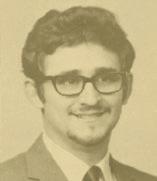
Nick stated that it was the strong faculty that really made his time at Austin Seminary life-changing. He especially remembers the influence of Professors Eugene March, Stuart Currie, and John Jansen who left indelible marks upon his ministry. Even before coming to Austin, Nick loved languages. As an undergraduate, he had loved his study of French. From the very first year in the Seminary, he was attracted to the study of Greek. Eugene March nurtured this Greek passion and then Stuart Currie solidified it through an independent study. Currie met weekly with Nick in evening sessions where they would read a variety of scriptures aloud in Greek to each other. Nick credits these sessions, which lasted for an entire academic year, with his solid understanding of Greek throughout his ministry, bringing this skill to his preaching and teaching. Nick said, “To this day, I’m solid in my Greek.” Of John Jansen, Nick said, “I did the very best exegesis I ever did under his guidance.”
Nick’s appreciation for the Seminary led him to recruit one of our current students,
Lydia Sullinger, who recently delivered her senior sermon. Nick was there to hear it. He said when it was clear Lydia was discerning a call to ministry, he encouraged her to explore Austin Seminary. Nick said, “I knew there was no other place that could provide her such deep support. The support is not only financial, but also through mentoring, academic challenge, and rigorous learning.” He also said that those are the same reasons that he supports Austin Seminary financially today as a graduate. He wants others to have this same experience.
One story in scripture is most dear to Nick and continues to speak to him long after retirement. Nick said that over his ministry, he learned to see the story of Joseph and his brothers found in Genesis 37-45 as a powerful story about a completely dysfunctional family, what he calls, “A family from hell.” Joseph’s brothers were so filled with jealousy and hatred that they literally wanted to kill Joseph. Yet, after years of pain and separation, Joseph could not allow his family to perish. He forgave them and sent for his father and younger brother. He did not punish his brothers, although it was within his power to do so. He showed the ultimate Grace. Nick remarked, “We see this story and we see the betrayal, but we also see the redemption.” Joseph’s story is a rich metaphor for the love of God. Nick closed our conversation by saying, “We are still that family. And God still provides grace and redemption. That is the power of that story that I find so important.”


A gifted educator in her own right, Kay’s spouse, Alan Lewis, was a respected member of the Austin Seminary faculty. That is what brought her into the Seminary family. When we approached Kay to contribute to this alumni booklet, she said she never actually felt “called” to ministry. She then spoke of her work with God’s people, and her clear gifts for service, especially for ministry to groups of women, immediately rose to the surface of the conversation. Kay’s ministry story demonstrates God’s use of people in the service of the Kingdom beyond our personal imaginations. Kay clearly merged her passion for people, education, and God with her seminary training and became a unique shepherd.

“I never felt a personal call to ministry and only entered the MA program when I was forced to give up my job at UT, due to my husband’s worsening health. My official entry into the program in the fall of 1992 was preceded by attendance at two courses as a special student: ‘Grief, Death and Dying’ and ‘Human Pain
in Pastoral Perspective,’ both taught by Professor Ralph Underwood. I chose these courses to meet my personal needs, as Alan’s future was uncertain, and I wanted to prepare myself for whatever might lie ahead. It was then suggested that I enter the MA degree program and the credits I had already earned were transferred to the formal degree. After my graduation in 1996, I served in three congregations and in two states:
1996-1999: My first appointment was to the post of Youth Minister at the Congregational Church of Austin (UCC). Here, I oversaw the CE program and ran a weekly class for four teenagers. However, the work involved much more than my official title suggested. I was sent to St. Paul, Minnesota to attend a training course to teach ‘The Divine Drama’ and this led me to lead a year-long adult evening class, a development I had not foreseen. I had never considered teaching adults, but I found I had a flair for it and it became an important part of my position and in subsequent churches. I also helped plan and lead several church retreats and began an informal women’s group which met in people’s homes.
The committee that appointed me had expressed a wish that I examine the current CE program and make recommendations as to how it might be improved. A grant from the Texas Methodist Foundation having been secured, I used my background in educational and business research to examine the features that made youth programs successful, visiting various churches in the Austin area and in Scotland to discover what made them work. The subsequent booklet I produced included my original remit of analyzing the CE program at the Congregational Church and making recommendations, while also including examples of successful programs in other churches. This material was shared with a wider audience when I presented it at a meeting of the Brazos Association where it was very well received.
1999-2002: Round Rock Presbyterian Church, Round Rock, Texas. Here I coordinated the CE program, served as liturgist each Sunday and preached occasionally. I led a women’s Bible class weekly and took part in planning and speaking at retreats. I approached three women who had recently been widowed and suggested we form a group. They were not interested in a formal program, so we met monthly at an IHOP for breakfast, where concerns were shared and there was mutual encouragement; two of the women became close friends and later went on vacation together and when one person developed cancer, the others formed a supportive group.
2005-2007: Frame Memorial Presbyterian Church, Stevens Point, Wisconsin. I served as DCE for two years at this church, during a time of transition, alongside an interim pastor. In addition to my official duties, I once again started a supportive women’s group off campus.”
Sometimes it is only in retrospect that important aspects of our calling become evident. As time passes and the Spirit moves, a person’s call merges with the environment in order to move ministry forward to meet the needs of others. Kay’s alumna story is clearly such a story. When asked about a scripture that she finds especially powerful, Kay stated that one of her favorites is Philippians 4:4-7.
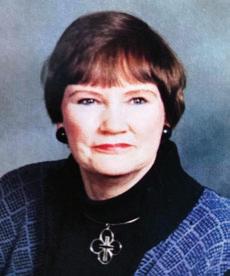

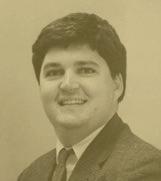
Richard has served the church for over 30 years. His work began as an Intern at First Presbyterian Church, Pasadena, Texas and led him to serve as solo pastor at First Presbyterian Church, Mt. Sterling, Kentucky. From there, Richard served as Head-of-staff at First Presbyterian Church, Troy, Ohio and then years later, Head-of-staff at St. Andrew Presbyterian Church, Denton, Texas. In the midst of all of his ministry, Richard returned to Austin Seminary to complete his Doctor of Ministry degree in 2001.
When asked about a moment during his time on campus that had a profound, formative impact on his pastoral practice, without hesitation Richard said, “I attended Midwinters the year they dedicated the practice worship space in memory of Professor Stan Hall. During that ceremony, the connection between our baptismal liturgy and the funeral liturgy caught my attention. It led me to a new practice – beginning and ending funerals at the baptismal font. I now begin funerals by pouring water in the baptismal font (lots of water splashing everywhere) and declaring that “In her baptism, Susan was united with Christ in his death and resurrection.” I conclude the worship service by returning to the baptismal font and lifting up a handful of water while announcing, “Susan’s baptism is complete.” Richard explained, “For me, the book-end moments at the baptismal font provide the appropriate context for us to give thanks to God for the person who had died and witness to the resurrection of our Lord Jesus Christ. That discovery happened because of my connection and return to Austin Presbyterian Theological Seminary. I return over and over.”
Richard said, “I support Austin Presbyterian Theological Seminary, because it continues to prepare students for their role as resident theologians in local churches and continues to provide opportunities for ministers to return and be engaged in honing their skills.”
Richard concluded, “Joshua 24:15 continues to speak to me about the ongoing need to renew my commitment to following Christ. It also reminds me of the need to engage people through witness—I cannot force others to choose to follow Christ, but I can witness to the choice I make through my response to God’s claim on my life.”
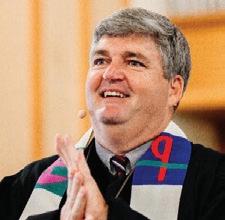
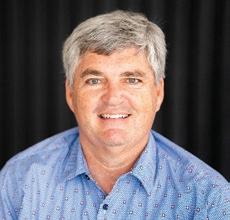

Since graduating in May 2011, Denise has served as an active volunteer Associate Minister. Denise said, “I’m also keeping up with my law practice and finding joy through service on the Austin Seminary Board of Trustees and the creation of JustSisters, a sisterhood of Jesus followers seeking social justice.”

When asked to identify one major lasting effect of her studies at Austin Seminary, Denise said, “On the whole, seminary taught me not to hold such a tight grip on the scriptures. It’s okay—for the scriptures to meander, to leave out details, to be difficult to grasp, and to suggest contradictory ideas. Together, the God-breathed scriptures point us to the perfect truth of God, but they themselves need not be perfect. Seminary also taught me not to be too highly critical of the church in history. Dr. Ellen Babinsky, my church history professor, was keen on reminding students that Jesus’ followers have long made decisions they believed to be faithful to the scriptures and to God, even though, with hindsight we have judged their actions to fall far short of God’s mark. This warns today’s believers to exercise our faith with great humility.”
Denise supports Austin Seminary with her time, talent, and her treasure. She wrote, “It’s important for my peers and me to support the work of the Seminary because our world still needs good news. The Seminary continues to produce wise, compassionate, and learned messengers of the good news for our time and, with our help, for generations to come.”
Scripture continues to weave its way through Denise’s days, long after her time on campus. Her favorite scripture speaks to her daily:
I thank my God every time I remember you. In all my prayers for all of you, I always pray with joy because of your partnership in the gospel from the first day until now, being confident of this, that he who began a good work in you will carry it on to completion until the day of Christ Jesus. - Philippians 1:3-6 NIV
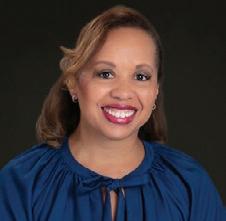

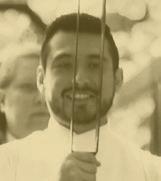
After graduating from Austin Seminary, Jasiel served as a Pastoral Resident at Second Presbyterian Church in Indianapolis, Indiana. A couple of years later, he moved to Atlanta, Georgia, to serve as the Associate Pastor for Mission and Engagement at Central Presbyterian Church. During this period, Jasiel became the Acting Head of Staff and then was called to serve as the Pastor / Head of Staff at First Presbyterian Church, Kerrville, Texas.
“I can recall two formative moments while attending Austin Seminary. The first was serving as the Summer Chaplain (Ministry Team) at Montreat during my second summer at Austin Seminary after Professor Eric Wall invited me to apply for this position. He became a mentor and someone I deeply admired, given his passion for worship, the Presbyterian tradition, and its rituals. The other formative moment was taking the “Theologies of Moltmann and Gutierrez” course taught by Professor Cindy Rigby. This was my favorite class in seminary since it allowed me to reconcile different theological views (Western and Latin American) in a way that I could apply to my own ministerial calling. Professor Rigby became a great mentor and I was blessed to have her as my preacher for my installation service at FPC Kerrville.
I genuinely believe that Austin Seminary exemplifies to the whole denomination how diversity can have a massive impact on how we interpret and share theological views with those we serve in ministry. Austin Seminary provides a space in which we are allowed to ask hard questions, wrestle with how theology informs society and politics, and equips us to become better pastors in our current context.
A very meaningful scripture for me is Psalm 90:14-17 NIV: Satisfy us in the morning with your unfailing love, that we may sing for joy and be glad all our days. Make us glad for as many days as you have afflicted us, for as many years as we have seen trouble. May your deeds be shown to your servants, your splendor to their children. May the favor of the Lord our God rest on us; establish the work of our hands for us—yes, establish the work of our hands.
God satisfies us first thing in the morning, even before we know what to ask for or regardless of the kind of hunger we may feel. God will always bless the work of our hands and will take whatever we may provide to the next phase. God carries on the work we start, even if we don’t see the final product.”


I joined Austin Presbyterian Theological Seminary during the Lenten season. It is my honor to serve the mission of educating and equipping people for ordained Christian ministry and other forms of Christian service and leadership, and I look forward to meeting our alumni and friends who will return to campus for graduation. Together we will celebrate the next generation who came to learn and now depart to serve. With the 2024 graduates and all our alumni in mind, I offer this prayer: Dear ever-present Love, we give thanks that through the faithfulness of Christ we celebrate the labor of those called into Christian service. May your holy and abiding Spirit continue to animate the proclamation of good news. May the discipline of Biblical and theological studies sustain a compassionate and justice-seeking love of neighbor. And may the 2024 graduates and all alumni of Austin Seminary experience the courage and peace of your abundant life. Amen.
In service,
Rev. Ryan Arnold Vice President for Institutional Advancement


For the glory of God and to proclaim the gospel of Jesus Christ, Austin Presbyterian Theological Seminary is a seminary in the PresbyterianReformed tradition whose mission is to educate and equip people for ordained Christian ministry and other forms of Christian service and leadership; to employ its resources for the nurture of the church; to practice and promote critical theological thought and research; to engage a range of voices and perspectives within and beyond the life of the Seminary; and to be a winsome and exemplary community of God’s people.

Office of Institutional Advancement
100 East 27th Street | Austin, TX 78705
512-404-4830 | AustinSeminary.edu
Give securely online at https://www.AustinSeminary.edu/gra or scan the code.